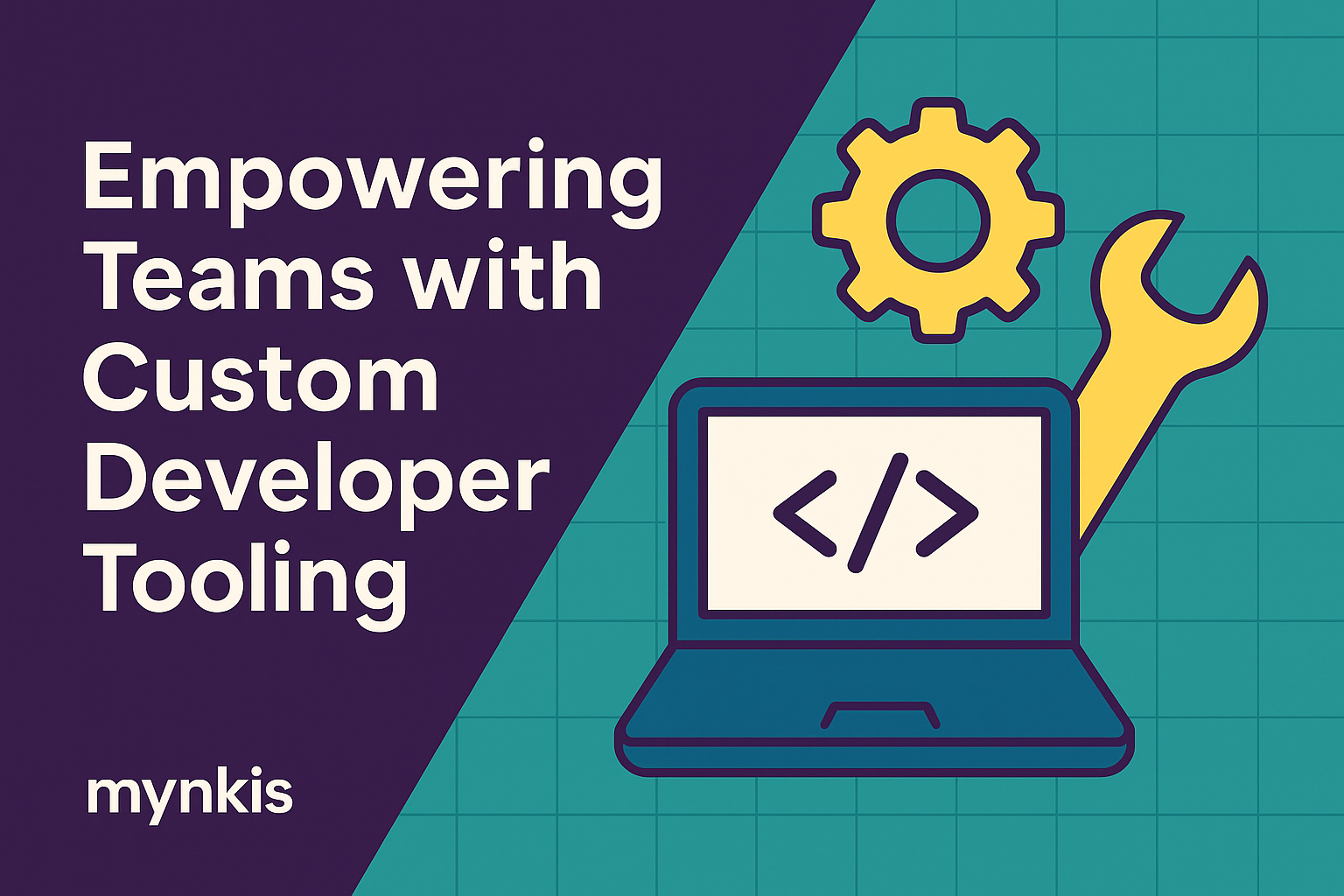Schedule a Demo
In the dynamic environment of tech startups, the importance of streamlined and customized developer tooling can't be overstated. As founders, if you're focused on creating scalable software or building an MVP, understanding and leveraging the right tools can accelerate your development process and foster innovation. Custom developer tooling isn't just about coding faster; it's about crafting an ecosystem that perfectly fits your team's workflow, culture, and long-term tech vision.
Custom developer tooling serves as the backbone for operational efficiency. By tailoring tools to match the unique needs and processes of your development team, you provide them with a more intuitive and less disruptive environment. Consider how a personalized Integrated Development Environment (IDE) or custom CI/CD pipelines can reduce the time developers spend navigating and troubleshooting standard solutions. Tailored solutions not only increase productivity but also boost developer morale as they feel the tools were made with them in mind.
When building an MVP, speed and agility are paramount. Customized developer tools can streamline your MVP development by focusing on the essential features needed for early validation. I recall working with a startup where we designed a custom toolset that significantly reduced their iteration times on core functionalities. This allowed them to launch their MVP to the market swiftly and gather critical user feedback without being bogged down by generic tooling limitations.
For founders, ensuring the custom software development not only meets immediate needs but also scales with business growth is crucial. Implementing scalable developer tools from the outset can save immense resources down the line. For example, a well-architected modular code framework can allow developers to build upon existing structures, making the addition of new features seamless and efficient. Early investments in scalable tooling benefit long-term tech infrastructure, fostering adaptability as your business expands.
Custom developer tooling isn't static; it should evolve with your team. Encouraging a culture of continuous improvement through iterative feedback loops can enhance tooling effectiveness. In my experience, companies that have regular developer retrospectives often refine their tools to better suit current projects. This practice not only improves tools but strengthens team cohesion and commitment to shared goals.
As your startup grows into enterprise web solutions, integrating your custom tooling with industry standards becomes paramount. Compliance with standards like ISO/IEC 27001 for information security can expand your client base. Balancing customization with industry norms ensures your development practices are both innovative and credible on a broader scale.
Considering leveraging open-source frameworks can augment your custom custom software development. Integrating open-source tools can offer flexibility while maintaining the potential for community support and updates. Companies like Red Hat and GitLab have successfully integrated open-source solutions to craft their environments, enhancing both functionality and reliability of their proprietary tools.
Selecting the appropriate developer tools requires a nuanced understanding of your team's strengths, challenges, and future direction. Drawing from thought leaders like Martin Fowler, who advocates for domains-specific languages (DSLs), choosing or building tools that enhance specific aspects of your custom software development process can lead to notable gains in efficiency and satisfaction. Whether you're building internal code generators or testing automation, aligning your tooling strategy with your development philosophy is key.
While the benefits of custom developer tooling are substantial, the journey isn't without challenges. Implementing new tools can face resistance from developers used to existing workflows. During my tenure advising startups, overcoming this often required comprehensive change management strategies, involving developers early in the design process to gain their buy-in and mitigate the learning curve. It's also important to recognize that based on available research, individual results may vary, and what works for one team might not suit another.
Looking ahead, the future of developer tooling is bound to involve more AI-driven and machine learning aspects. Envision a toolset that auto-suggests code improvements or even writes entire modules based on specifications—a direction companies like GitHub are exploring with tools like Copilot. While the benefits could revolutionize development speed, it's crucial to consider the implications on job roles and the human element in coding.
When embarking on creating custom developer tooling, cost considerations must be front and center. From my interactions with founders, some have found that while initial investment is substantial, the long-term ROI from reduced development time and improved quality can be significant. However, maintaining a balance between customization and cost-effectiveness requires careful planning and often, as Ken Schwaber points out in his work on Scrum, re-evaluation of priorities based on market shifts and technological advancements.
Integrating new custom tooling also necessitates a robust training and onboarding program. When introducing proprietary tools at a startup I worked with, we implemented an iterative training approach paired with extensive documentation. This not only eased the transition but fostered a deeper understanding of why and how the tools were developed for their needs. Creating such an environment where learning new tools is part of the development culture greatly supports adoption and utilization.
Custom tools can significantly improve team collaboration. At one company, we designed a tool that integrated our version control system with project management software, allowing developers to see task statuses directly in their coding environment. This reduced communication friction and enhanced project visibility. Tools like this can become a central hub for team interaction, accelerating problem-solving and innovation.
Finally, it's vital to quantify the impact of your custom tooling to understand its effectiveness. In my work with companies transitioning to bespoke development environments, we established KPIs focusing on time-to-market, code quality metrics, and developer satisfaction. Continually reviewing these metrics helped us refine our tooling strategy, ensuring it aligned with the startup's agile growth path. Such transparency in performance indicators builds a foundation of trustworthiness in the development process and tools used.
